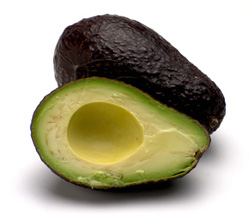 Naively, I asked for larks. The grocery clerk seemed perplexed.
Naively, I asked for larks. The grocery clerk seemed perplexed.
“You know,” I added … “song birds? And, laurel branches, please.”
Armed with my shopping list from my 1954 edition of the Alice B Toklas cookbook (the Hashish Fudge recipe was expunged from that edition) I was beginning life as a newly wed. I didn’t realize that Alice B Toklas was not Betty Crocker; that our local grocery store in Fort Worth, Texas was not a wildfowl and gourmet food purveyor circa Paris 1920’s; and that I wasn’t cooking for Picasso, Hemingway, Matisse or Braque. I was a recently graduated art student and lookin’ to live La Vie Bohème. Anything that associated delicious food and painting was what I most wanted in life. Since I was a woman and not a man-with-a-wife, if I wanted it, I was going to have to do it all myself! And, so … arm in arm with Alice, I started my career as a would-be painter/chef. Never made Alice’s Larks. However, the super impressed clerks at my market thought I was an authentic epicurean, and I never dared tell them otherwise.

 My husband Mike passed away suddenly two years ago. A “catastrophic coronary event,” I remember hearing before the doctor launched into the “We did everything we could” speech. I sat motionless in the Naugahyde chair in that dimly lit room they usher people into to tell them such things.
My husband Mike passed away suddenly two years ago. A “catastrophic coronary event,” I remember hearing before the doctor launched into the “We did everything we could” speech. I sat motionless in the Naugahyde chair in that dimly lit room they usher people into to tell them such things.
 Sometimes it's surprising to find what a recipe box can hold.
Sometimes it's surprising to find what a recipe box can hold.
 I have an image of my father wearing a blue and white canvas pin-stripe apron over his clothes that my mother gave him (with good reason), standing over the barbecue in our backyard alternately spraying charcoal fluid (with big effect) on the briquettes and a few moments later spraying, using his thumb as a spray cap, a large bottle of Canada Dry Soda Water filled (and refilled) with water from the hose onto the resulting flames from the barbecue that were threatening to ruin his perfect barbecued ribs. They were perfect which is sort of surprising since my father couldn’t really cook at all. Scrambled eggs and burnt bacon is about all I remember from his repertoire except for the night he exploded a can of baked beans since he’d decided it was okay to heat them in the can (unopened) which he’d placed in a large pot of boiling water and, I think, forgotten about them. Tip: don’t try that at home.
I have an image of my father wearing a blue and white canvas pin-stripe apron over his clothes that my mother gave him (with good reason), standing over the barbecue in our backyard alternately spraying charcoal fluid (with big effect) on the briquettes and a few moments later spraying, using his thumb as a spray cap, a large bottle of Canada Dry Soda Water filled (and refilled) with water from the hose onto the resulting flames from the barbecue that were threatening to ruin his perfect barbecued ribs. They were perfect which is sort of surprising since my father couldn’t really cook at all. Scrambled eggs and burnt bacon is about all I remember from his repertoire except for the night he exploded a can of baked beans since he’d decided it was okay to heat them in the can (unopened) which he’d placed in a large pot of boiling water and, I think, forgotten about them. Tip: don’t try that at home.
